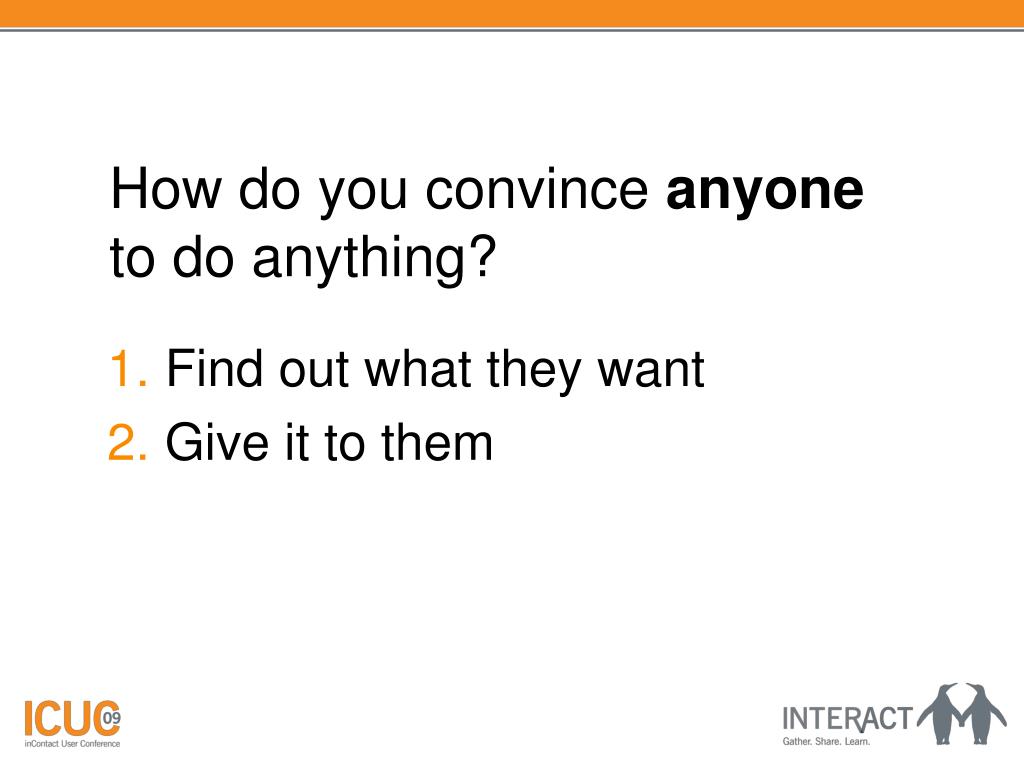How To Convince Anyone To Do Anything

Stop wasting time and energy! Mastering the art of persuasion is no longer a secret, it's a necessity.
Unlock the power to influence decisions, navigate negotiations, and achieve your goals with proven techniques that deliver results.
Understanding the Foundation of Persuasion
Persuasion isn't manipulation; it's about building genuine connections and understanding the other person's needs. This requires empathy and active listening.
According to a 2017 study by *Harvard Business Review*, individuals who demonstrate empathy are significantly more successful in negotiation settings. Understand their motivations and you’re halfway there.
Dr. Robert Cialdini's six principles of persuasion are foundational. Reciprocity, scarcity, authority, commitment/consistency, liking, and consensus are key.
Reciprocity: Give to Get
People are more likely to comply with a request if they feel they owe you something. Offering a small favor beforehand dramatically increases your chances.
This isn't bribery, it's basic human psychology. A simple offer of help creates a sense of obligation.
Scarcity: The Power of Limited Availability
Highlighting the limited availability of a product or opportunity creates urgency. People fear missing out.
Frame your request as a limited-time offer to tap into this powerful motivator. Remember, it must be truthful to avoid damaging trust.
Authority: Establishing Credibility
People tend to obey authority figures. Establishing yourself as an expert in your field enhances your persuasive power.
Mention your qualifications and experience, but do so humbly. Authenticity is crucial.
Commitment and Consistency: The Power of Small Steps
Once someone commits to something, they're more likely to follow through. Start with small requests to build momentum.
A simple "yes" early on makes it harder for them to say "no" later. This is a powerful tactic in long-term persuasion.
Liking: The Importance of Rapport
People are more likely to be persuaded by those they like. Find common ground and build rapport.
Genuine compliments and a friendly demeanor go a long way. Remember, people buy into you before they buy into your idea.
Consensus: The Power of Social Proof
People often look to others for cues on how to behave. Highlight the popularity of your idea or product.
Testimonials and positive reviews are powerful tools. Show them that others are already on board.
Practical Application: Mastering the Art
These principles aren't just theoretical; they're highly practical. Practice incorporating them into your everyday interactions.
Start by identifying the needs of the person you're trying to persuade. Tailor your approach to their specific motivations.
Effective communication is essential. Be clear, concise, and confident in your delivery.
"The key to successful persuasion is understanding the other person's perspective and framing your argument in a way that resonates with them," advises *negotiation expert*, Chris Voss.
Don't be afraid to ask for what you want, but do so respectfully. Remember, persuasion is a two-way street.
Next Steps: Continuous Improvement
Persuasion is a skill that requires continuous learning and refinement. Seek out opportunities to practice and improve your techniques.
Read books on negotiation and influence. Observe how successful persuaders operate in real-world situations.
Remember, ethical persuasion is about helping others see the value in your ideas, not manipulating them. Use your power wisely.


















